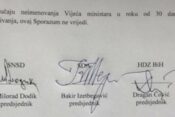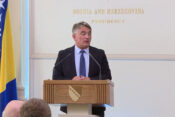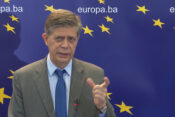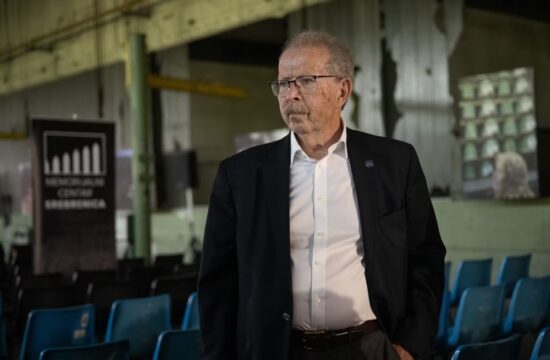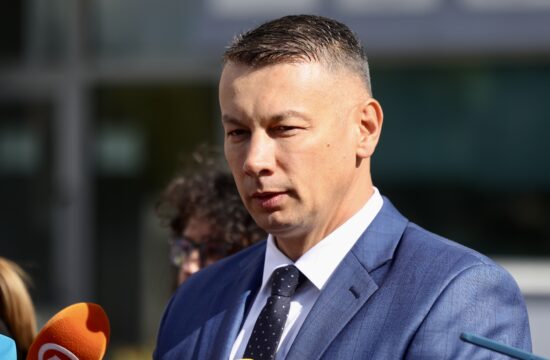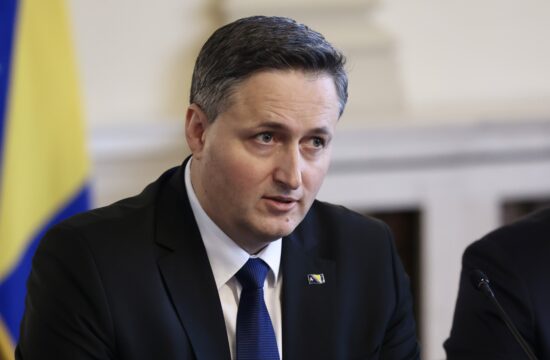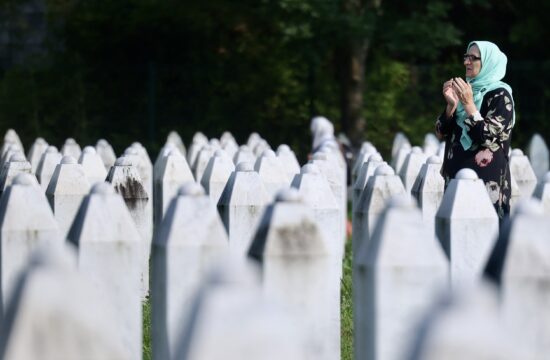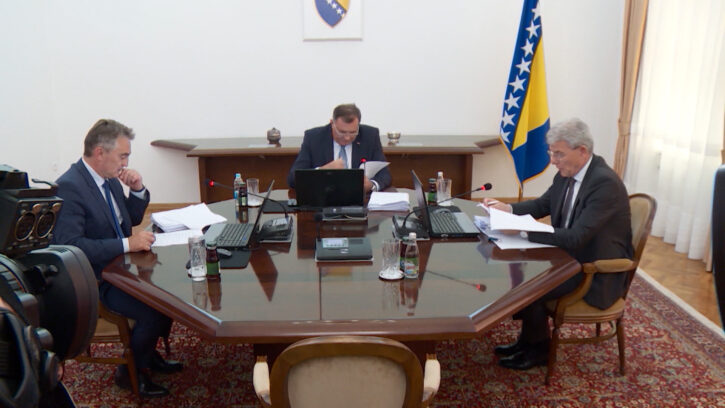
Bosnian State Presidency session set to discuss the appointment of the prime-minister designate, which would be one of the final steps in the post-election government formation, was cancelled on Tuesday only minutes before it was supposed to begin, the Presidency members confirmed to reporters.
“All three members agreed that the session shouldn't take place. The reason why is that the conditions to hold the session were not met and, in my opinion, this left the room for an agreement within the next few days, to try and find a solution,” said Bosniak Presidency member Sefik Dzaferovic, who was the first to address the media after the failed session.
He added that the solution lies in the adoption of the disputable Annual National Programme (ANP) for the NATO and appointment of the prime minister-designate in Bosnia's Council of Minister, which is the state-level government.
This was the second failed attempt of the State tripartite Presidency within one week to meet and endorse the disputed document for the NATO and appoint a candidate who would name the ministers in the state government.
Although the leaders of three strongest nationalist parties signed earlier this month an agreement that among other things stipulates the principles to form the government, the statements they gave in the following days showed the deal was not likely to be implemented within 30 days, as agreed.
The leaders of the Alliance of Independent Social Democrats (SNSD) Milorad Dodik, the Croat Democratic Union (HDZ BiH) Dragan Covic and the Party of Democratic Action (SDA) Bakir Izetbegovic put the signatures on the document on August 5, in presence of the EU Ambassador in Bosnia Lars-Gunnar Wigemark.
The country's road to NATO which was vaguely mentioned in the leaders’ agreement is a stumbling stone and has been preventing the government formation in the past ten months after the general election was held.
While the Bosniak and Croat representatives support the membership, the Serb political leadership is against it and is resolute in maintaining the stance on military neutrality.
“The essence (of the problem) is that Mr Dodik is not ready to respect all the laws of this country, as I said many times. Laws must be respected,” said the Bosniak Presidency member, interpreting the problem from his point of view.
But Dodik, who is the SNSD leader and represents the Serbs in the Presidency, claims the opposite. According to him, the ongoing crisis is a result of the Bosniaks “usurping” the rights of the Croats and Serbs.
He recalled that the Serb candidate who was nominated by the SNSD was accepted for the appointment but ten months after the general election the Bosniaks do not allow the Serbs to be legitimately represented.
“Some are referring to the dull and empty talk that they support the legitimacy but they refuse to accept it as the fact that the Presidency must propose the candidate 20 days after the House of Representatives held the session otherwise it also violates the law,” Dodik said.
The 30-day deadline to implement the law signed on August 5 is coming near, he stressed and added that the Serb leadership will take measures to prevent having their right usurped the way that “the SDA and political Sarajevo planned to do.”
Zeljko Komsic, the Croat Presidency member, also pointed out the necessity to obey the laws, saying that a compromise is possible.
“We're all losers in this situation, nobody will get any benefit out of it. We can reach a compromise, it lies in what we already have,” he stressed.
Commenting on the August 5 agreement in which the election winners defined the principles to form the state-level government, Komsic said he would not have allowed the deal to be interpreted in different ways if he had taken part in the signing of that document.
“As the Presidency member, I stress that the Constitution and the laws must be respected. If you bring the Constitution and laws into the question and if you refute the fundaments of the state's functioning, then all miracles are possible. All countries, democratic countries, are based on the implementation of the Constitution and laws,” said Komsic.
Bosnia consists of two semi-autonomous regions, a Serb-dominated Republika Srpska and the Federation shared by the Bosniaks and Croats. The three major ethnic groups share the power in the state-level institutions in accordance with the Constitution.

